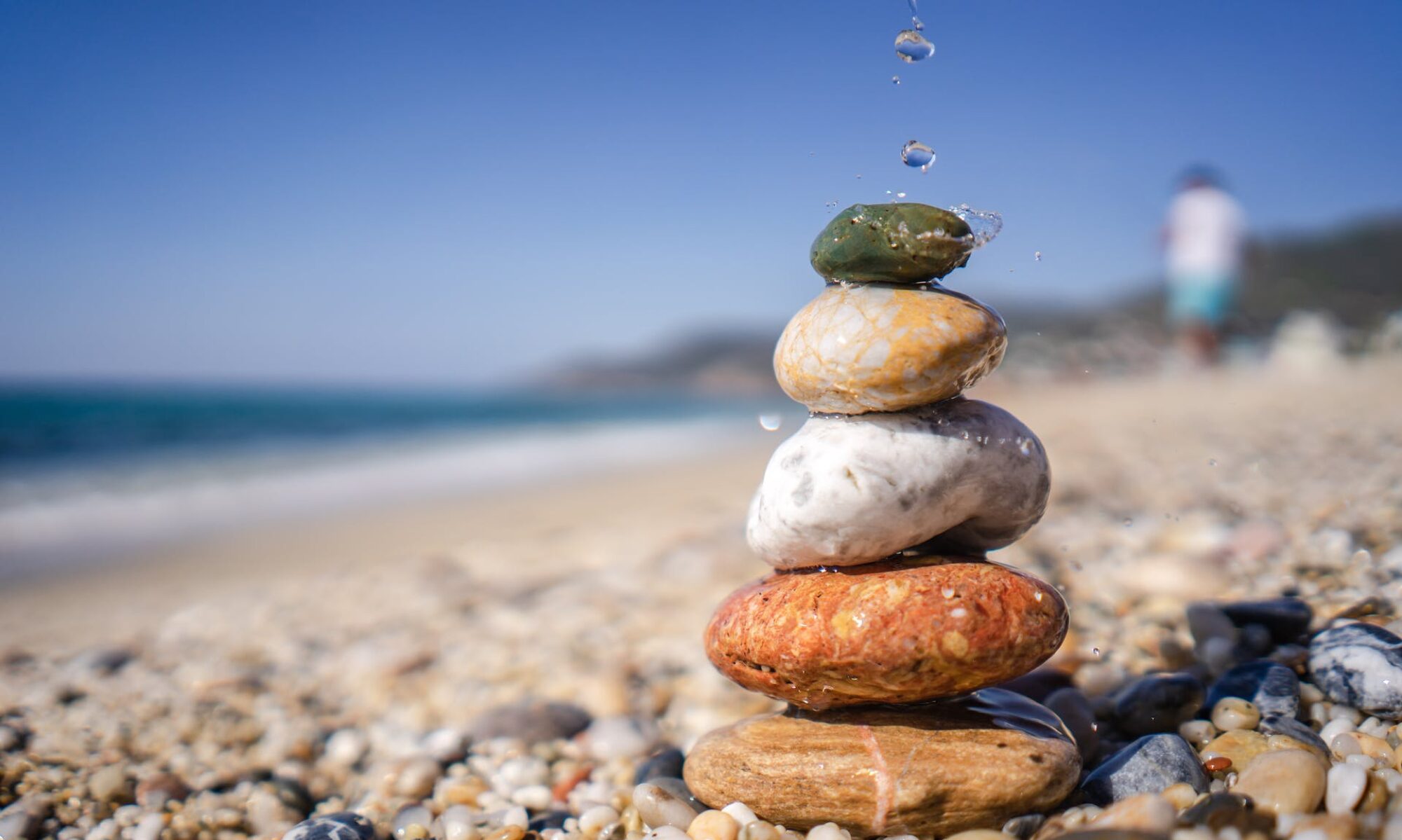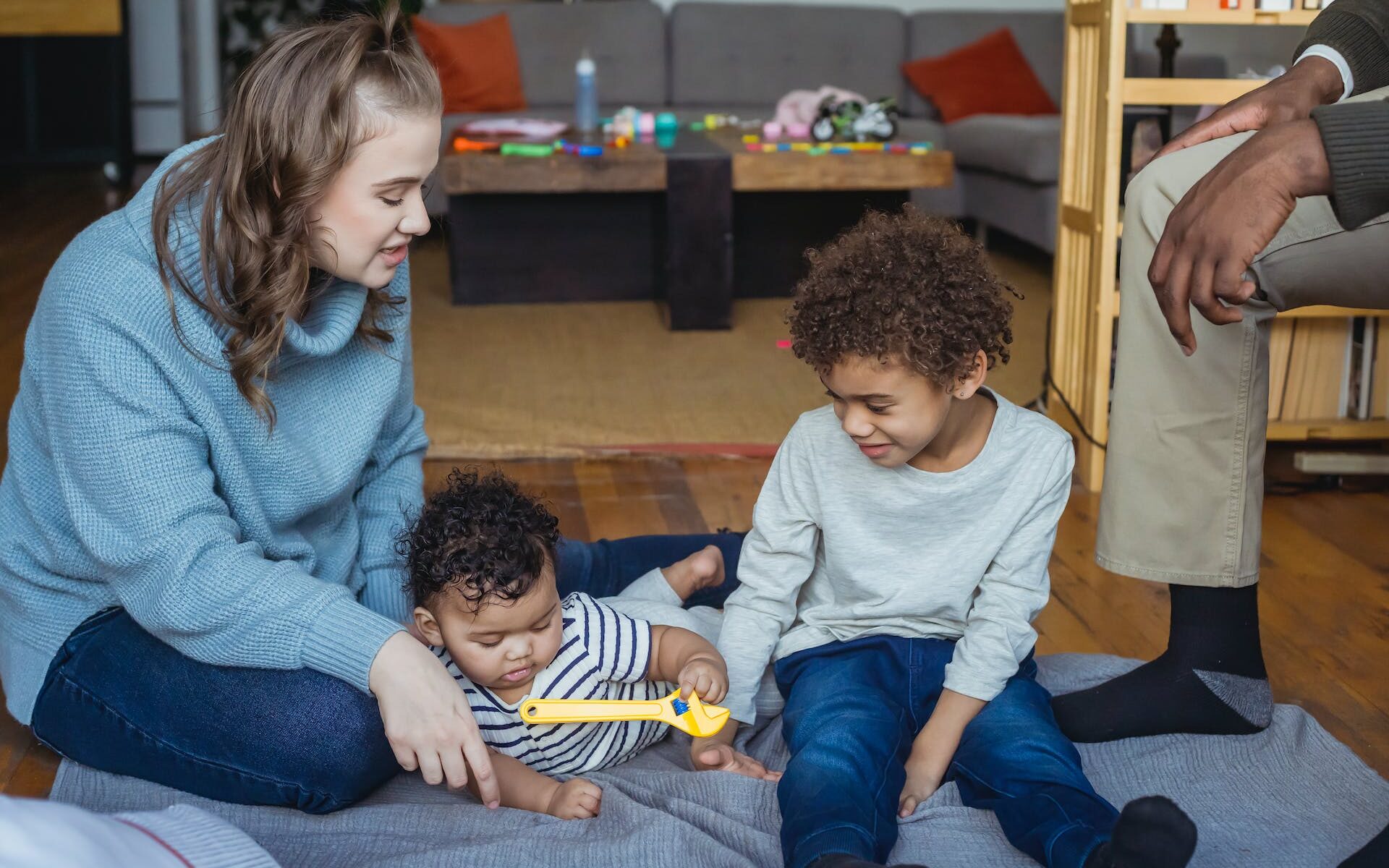Für Projektinfo und Anmeldung auf Deutsch bitte runter scrollen / please scroll down for project information and registration in German
Table of contents of this website (scroll down for finding everything)
Outcomes of the Summer School
The magazine
The movie
Read here what happened before the Summer School…
Invitation to the Summer School
All important info about the Summer School in a nutshell
Meet Christiane and learn about the children´s program

Follow us on Instagram:
The project
The main objective of this project is to empower parents of children with Afro heritage to actively accompany their children´s process of identity formation so that they feel proud of their multiple heritages. This includes increasing the awareness of the European mixed-ethnic reality – that Europeans are also dark-skinned, curly-haired, and often partly with ancestry from outside of EU countries. It also includes increasing the self-appreciation amongst minorities with African ancestry in the white-normative societies of the EU. It includes letting mixed people know that skin color is not the defining factor for being European and offering “European” as one possible identity for them.
The heart of the project is a 3-day summer school for parents where at least one parent is of African ancestry. There is childcare for the children during the event. The overall objective is to support parents in dealing with everyday situations that address the fact that their children are not white and to support them in helping their children grow up feeling proud of their identity. We use working with hair as our primary method since hair is an important expression of identity and at the same time an easy trigger for conversation.
Afro-Europeans are a minority group in Europe and hence deserve a learning environment where they are among people from their community, so they can feel comfortable in this learning setup.
Outcomes of the Summer School…
60 people gathered for 3 days in July 2024 to learn about Afro hair and identity. We enjoyed it so much! Here are some impressions.
The magazine
Afro-European: Hair and Identity
We are thrilled to present the very 1st edition of the AFRO-EUROPEAN! We are inspired to let this be the start of many more editions. Do take a look and learn about Afro hair, identity and our Summer School. You are welcome to leave a comment at the very bottom of this page.
The movie
We proudly present: the documentary of our Summer School in Berlin 2024!
Read here what happened before the Summer School…
Invitation to the summer school
Are you a parent of a child where at least one of the parents is of African ancestry? Then you are at the right place!
We would like to invite you to our summer school in Berlin, from the 18th to 21st of July 2024. This initiative is for parents like yourself, with children of African heritage.
We want to gather around the question: How can we best support our children to grow up with appreciation of their multiple heritages and empower them to develop a strong and proud identity?
Our hook to dive into this question will be our children´s hair: hair has always been an expression of identity. We want to learn together how to make African hair look amazing, in its own right, and at the same time learn about the historical significance of the Afro hair for a person’s identity. It is also our intention to create a space for open conversations about topics like race and looking different as well as for discussing the idea of European Identity.
In doing this, we have teamed up with experts on Afro Hair as well as scholars specialized in ethnicity and identity, who will give workshops in close collaboration with you and the other parents. And there will be lots of room for fun, playfulness and joy!
Children are very welcome to the summer school, and we have made a program for them as well. However, the main audience in this are the parents. It is your learning we are striving for, as it is going to be you who will be taking care of your children’s upbringing and their relationship with their hair, their identity and their sense of belonging during their childhood and youth.
The location of the summer school will take place at Zebra Kagel, outside Berlin. This former East German youth camp offers amazing facilities and accommodations ( https://zebrakagel.de/index.php/de/ ). We will reimburse you for the expenses on accommodation and food and subsidise travel costs. The budget per person for travel depends on your travel distance: 15€ if you arrive directly from Berlin, 130€ if you arrive from Germany, 200€ if you arrive from another EU country. You will get reimbursed for the travel costs after the event took place, and we will need your tickets for that, as proof of the expenses. Please book your Tickets early, since ticket costs are cheaper the earlier you buy them. All righty? If you have any questions, please contact us: ursel.biester@trekstones.de
The school will be held in English, and there will be translators available whenever necessary.
We open the doors at 17.00 Thursday 18th of July, and the official program starts in the morning of the following day.
We are so much looking forward to being with you, singing with you, dancing with you, learning with you, engaging in meaningful conversation and supporting each other in our journeys of accompanying our children´s growth!
Sincerely,
Ursel, Selva, Trine and Anders
This summer school is a project funded by Erasmus+, and is carried out in collaboration with Trekstones (a Germany-based organization) and WintherSol (a Denmark-based organization).
Registration form – registration closed
We have closed registrations for now, because we are fully booked. In case registration will open again, you will be able to find the registration link here again.
For those who have registered: If anything happens and you have to cancel again, please do send us an email as soon as you know, so somebody else can use the spot. Contact us via ursel.biester@trekstones.de
All important info around the summer school in a nutshell
Dates: 18.-21. July 2024
Arrival: any time on the 18.07. after 17:00
Departure: after lunch on the 21.07. (around 14:00)
Location: Zebra Kagel https://www.zebrakagel.de/index.php/en/
Address: Erich-Weinert-Str. 36, 15537 Grünheide-Kagel
Directions: find directions how to get there directly on the Zebra Kagel website: https://www.zebrakagel.de/index.php/en/directions
You can get there by public transport from Berlin. You can also park your car at the location.
Contact us:
Everything regarding organization and money contact Ursel (she/her): ursel.biester@trekstones.de and WhatsApp/Signal/Telegram/Text +4917661869607
Everything regarding the program contact Selva (she/her): selvisima@gmail.com
For all practical information contact Trine (she/her): +45 22120525 Whatsapp/textmessage or mail: trinehindo@gmail.com
Meet Christiane and learn about the children´s program
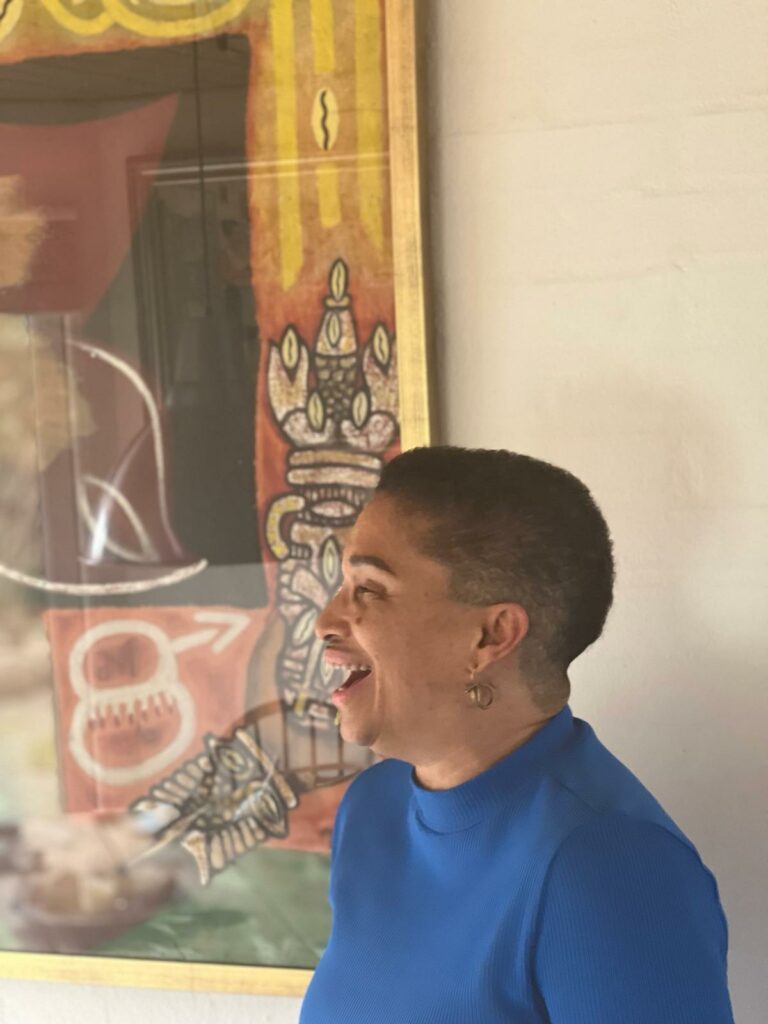
Christiane works with creative processes where creativity, identity and personal roots meet. For our summer school, she has accepted to be responsible for the important task of working with the children, during the times when the adults will be busy with their workshops.
She will guide the children through a creative journey, using masks made from paper mache, through which the children will explore nuances of their identity.
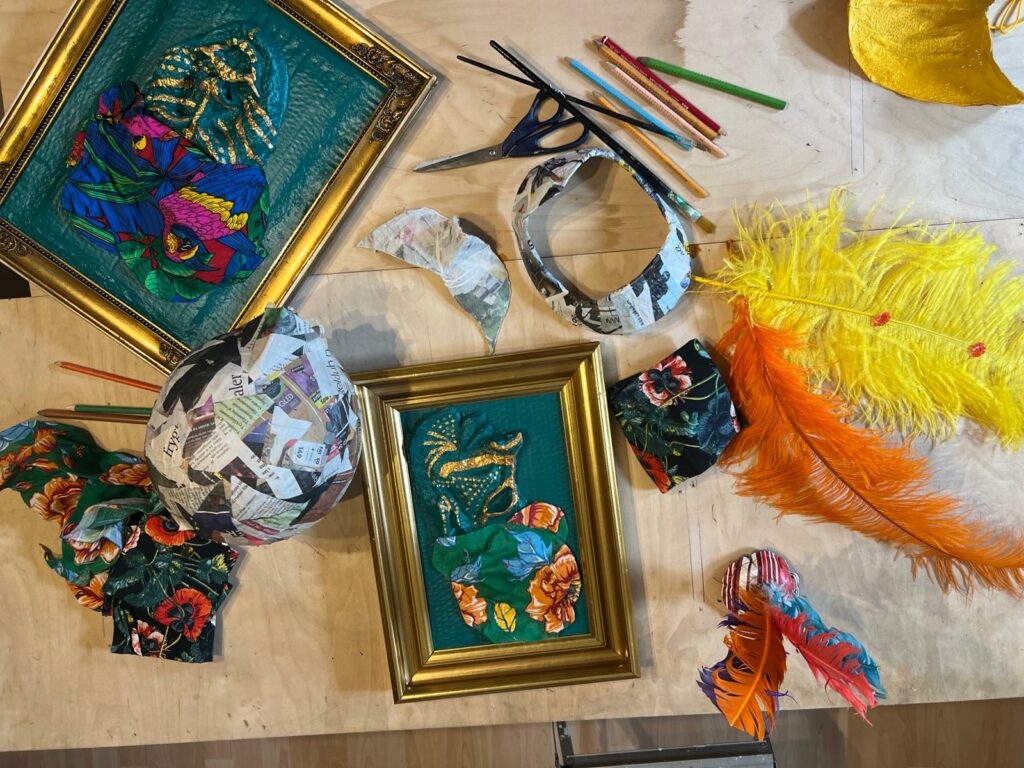
“Masks have always been a part of the human culture and history”, Christiane explains, “they were a central part of culture throughout the world – all the way from the Incan empire to the many African cultures. There they were used to frighten people, communicate with spirits, create common stories and much more.”
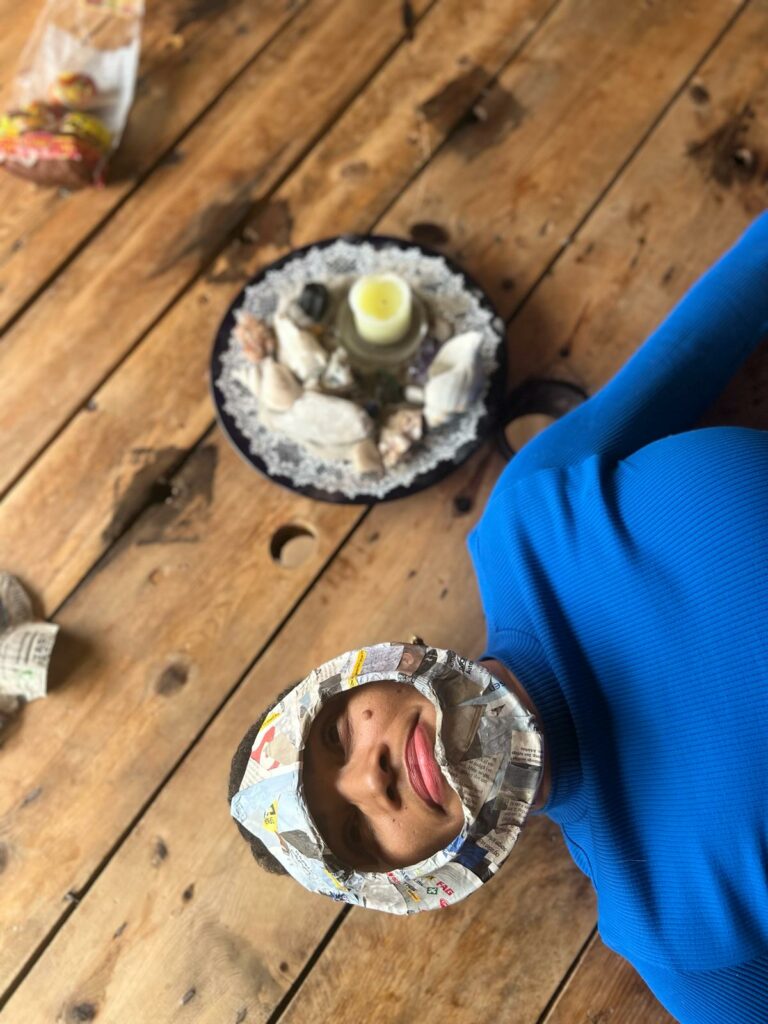
Masks have always given their users the opportunity to be something else. Exactly like the social “mask” everyone wears amongst people. Christiane has experience in working with the social mask, using the physical masks as a vehicle. Thus, the mask isn’t simply a symbol of mysticism and traditions, but a tool to understand one’s own identity and heritage.
In the workshop, which will go on during the whole duration of the summer school, Christiane will use her experience and passion to create an environment where children with different backgrounds and ages together can find meaning through creative processes and reflections The masks are therefore not simply pieces of artwork, but tools for personal growth and self-exploration for the children, and a way for them to embrace and appreciate all the aspects of being them.
Meet the speakers and learn about the program
Raising a Child of African heritage in Europe, with a healthy sense of identity
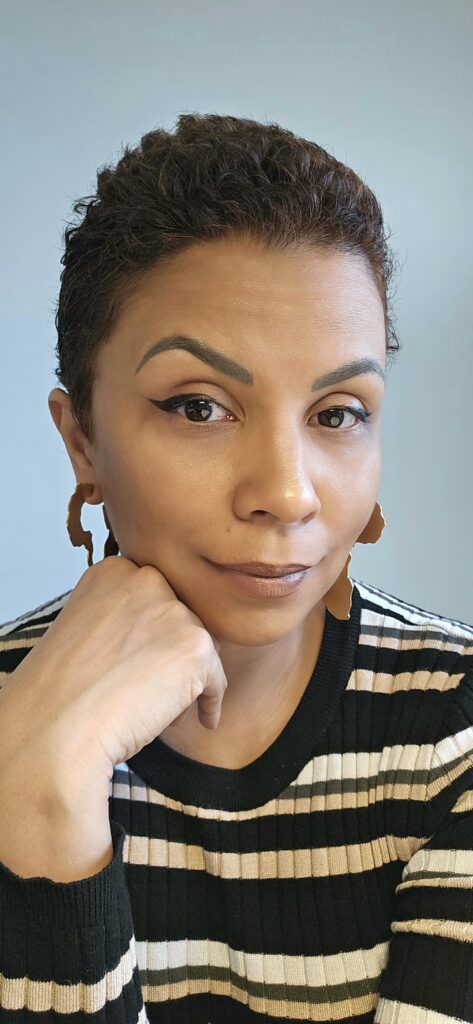
We are proud to present Lizandra Maia from REVIBRA EUROPA. She has agreed to give a workshop on how to help children with African heritage develop a healthy sense of identity, in a part of the world where the norm is Caucasian.
Raising a child of African heritage in Europe requires deliberate efforts and understanding from parents, in order to nurture a healthy sense of belonging and help the child not only to be comfortable in not looking like the majority, but to also to navigate the stereotype of the “real” European being Caucasian.
This article will, based on an interview with Lizandra, explore different strategies for parents of children with African heritage, in fostering a supportive environment for their children, emphasizing the need to recognize and confront both overt and subtle forms of racism.
Understanding racism
First and foremost, parents need to comprehend the multifaceted nature of racism. Racism is mostly understood by the majority as the overt hatred seen in extreme right-wing ideologies but in reality, the most harmful form of racism are the everyday prejudices held by well-meaning individuals. “The good-guy racism” manifests in seemingly benign actions and attitudes that still marginalize and stereotype people of color. Following this, parents must educate themselves about these subtleties to avoid repeating them unknowingly, while at the same time ensuring that the other important people surrounding the child also learn about this.
It is therefore crucial for parents to teach their African heritage children about racism and their unique identity. This includes differentiating between racism, judgment, and discrimination, helping children understand their experiences and the context of the society they live in. One way to do this is through age-appropriate discussions about historical and contemporary issues related to race, including the usage of black authors and scholars.
Parents should also prepare their children to handle microaggressions which are subtle, often unintentional, discriminatory comments or behaviors. Examples include strangers touching a child’s hair or making assumptions about their abilities based on their appearance. Teaching children how to assertively respond to these situations can empower them and affirm their dignity, something that over time is crucial for ensuring healthy identity development.
Moreover, creating an open environment where children feel safe to express their feelings and experiences is essential. Parents should encourage their children to talk about any incidents of possible racism they encounter and meet the observations with an open mind. This open dialogue can help children process their experiences and develop resilience.
Representation Matters
Children need to see themselves reflected in their environment. For children of African heritage, this means having books, toys, media, and community figures that represent how they look, as seeing oneself represented in various cultural narratives can affirm identity and provide role models who share similar experiences and look the same.
A part of this is creating a network of friends and mentors from diverse backgrounds, who can help the children feel a sense of belonging. This might involve connecting with other families of African heritage or participating in cultural events that celebrate their background. Such interactions can provide children with a broader understanding of their identity and a supportive community that recognizes and values their uniqueness.
Encouraging pride in their racial heritage is thus vital for a child’s self-esteem. This can be further strengthened by celebrating cultural traditions, discussing the achievements of people from their racial background, and reinforcing the idea that the racial identity is an integral and valuable part of who they are.
Lizandra sends her greetings and looks forward to seeing all the participants for the Summer School
During 2 afternoons we will be gifted with the visit of 2 hairdressers who will work with us on our children´s hair in a practical way
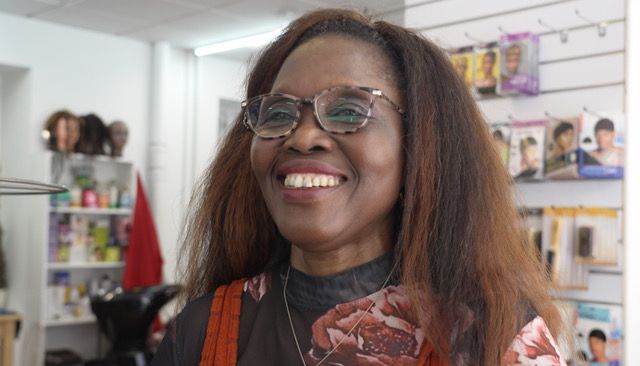
Stella lives and works in Aarhus, Denmark. She has been a pioneer in Afro hair care and styling, and has now captivated her audience there. Stella has become an ambassador for her African heritage, seamlessly blending traditional techniques with modern aesthetics. Her passion for preserving and promoting the cultural significance of Afro hair is palpable as she shares her journey from Nigeria to Denmark, highlighting her dedication to educating others about the rich history and diverse styles of Afro-textured hair. Stella’s work not only showcases her exceptional talent and innovation but also underscores the importance of cultural pride and representation in the beauty industry.
Our other hairdresser is Roxanne!
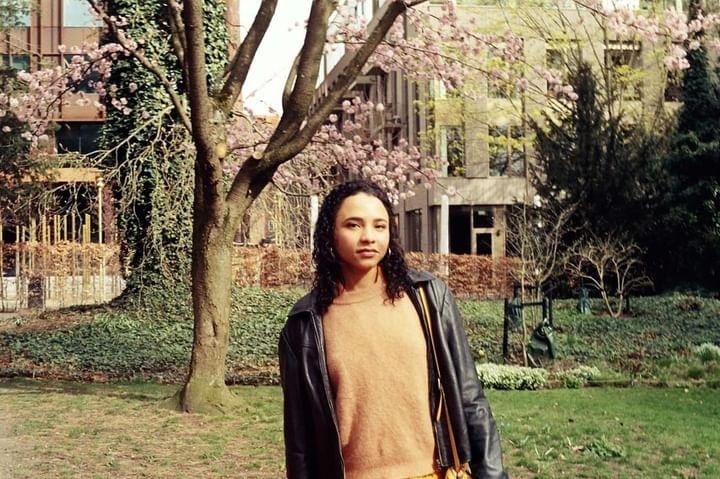
We are proud to introduce the talented Roxanne. When we asked those working in the field of diversity who would be most suitable for teaching us on natural hair treatment for Afro-decendants, they all screamed „ROXANNE!“
And now that we have met her, we understand their praise. Roxanne has kindly agreed to give us an introduction to the different African hair types and teach us about their treatment.
Welcome, Roxanne!
Meet the organizers
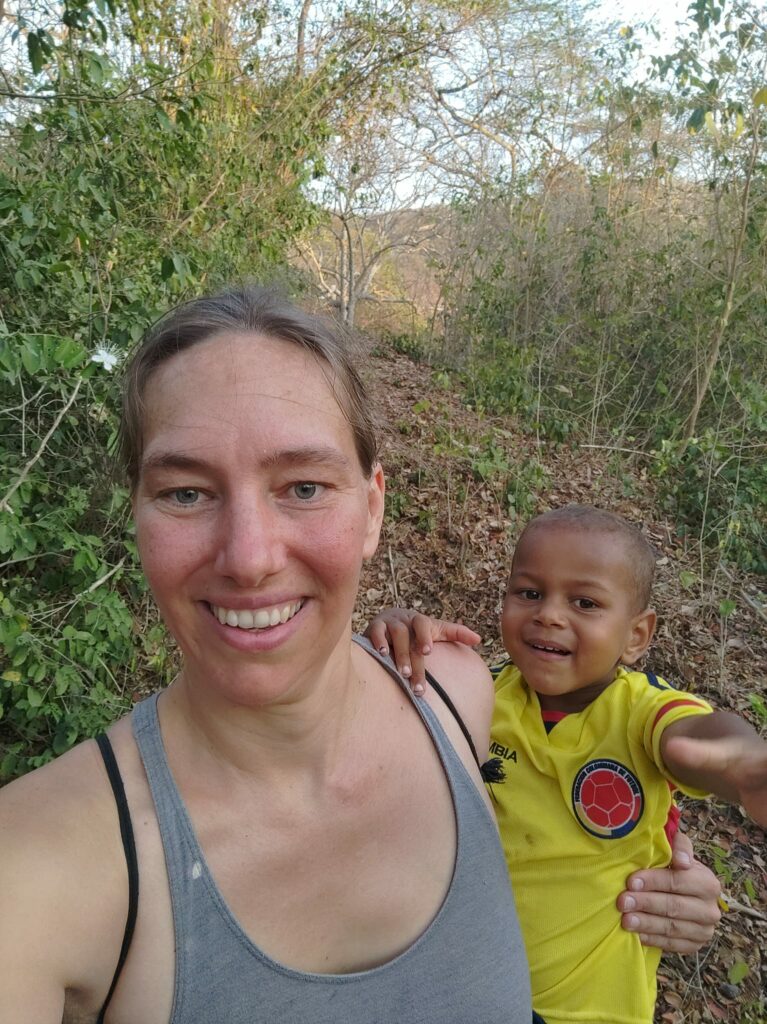
I am Ursel and project leader with my organization Trekstones. I am German, I have two children with my Cuban partner. We used to live in Berlin and recently moved to Bonn. I am doing this project mainly because I too want to learn how to do my children´s hair well and be in conversation with other parents of mixed race children about how we can raise them with appreciation for their multiple heritages.

I’m Selva Sol, a Cuban residing in Denmark and a proud mother of one. I am an activist and co-owner of the Winther-Sol company where I focus on cross-cultural studies and educational work related to the African Diaspora.
As the project leader of “Afro Hair and Identity” I am excited about the opportunity of meeting you all in our Summer Camp to share ideas, experiences and most of all, to have a great time together.
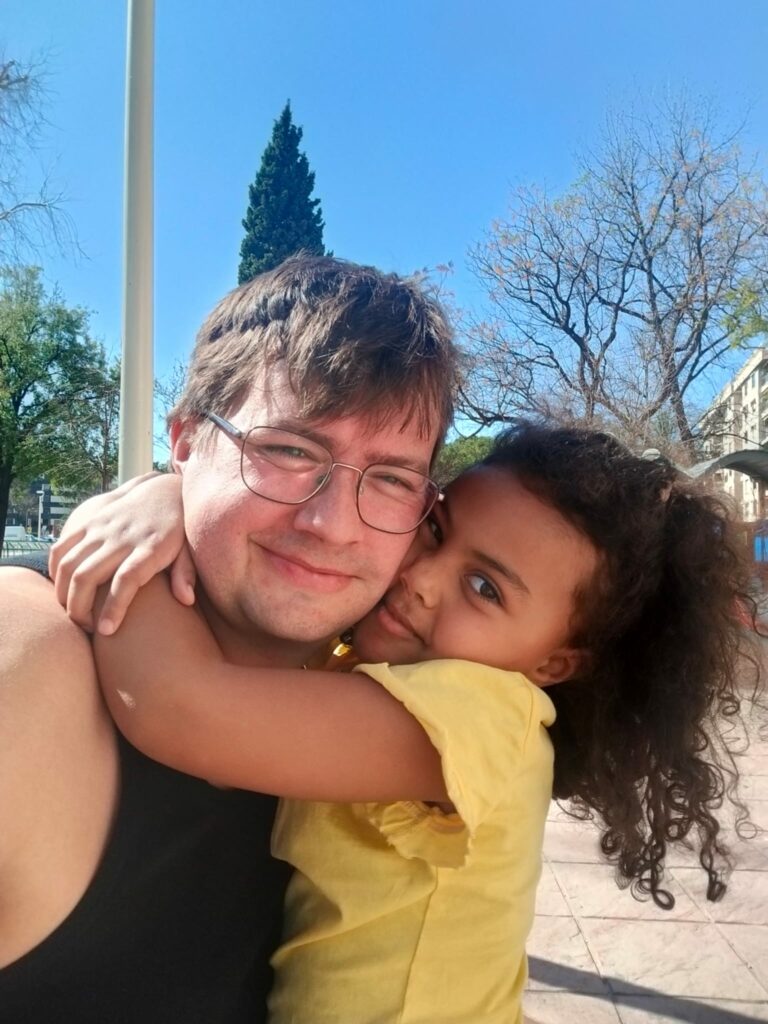
I’m Anders, educator, project maker, and the proud father of a child with partly African roots.
At the summer school, I will be keeping an eye on the practicalities as well as working on our communication with the filmmaker and photographer. In this, I will be interviewing you, making short stories and overall communicating the message of inclusion and beauty.
I look forward to meeting you all!
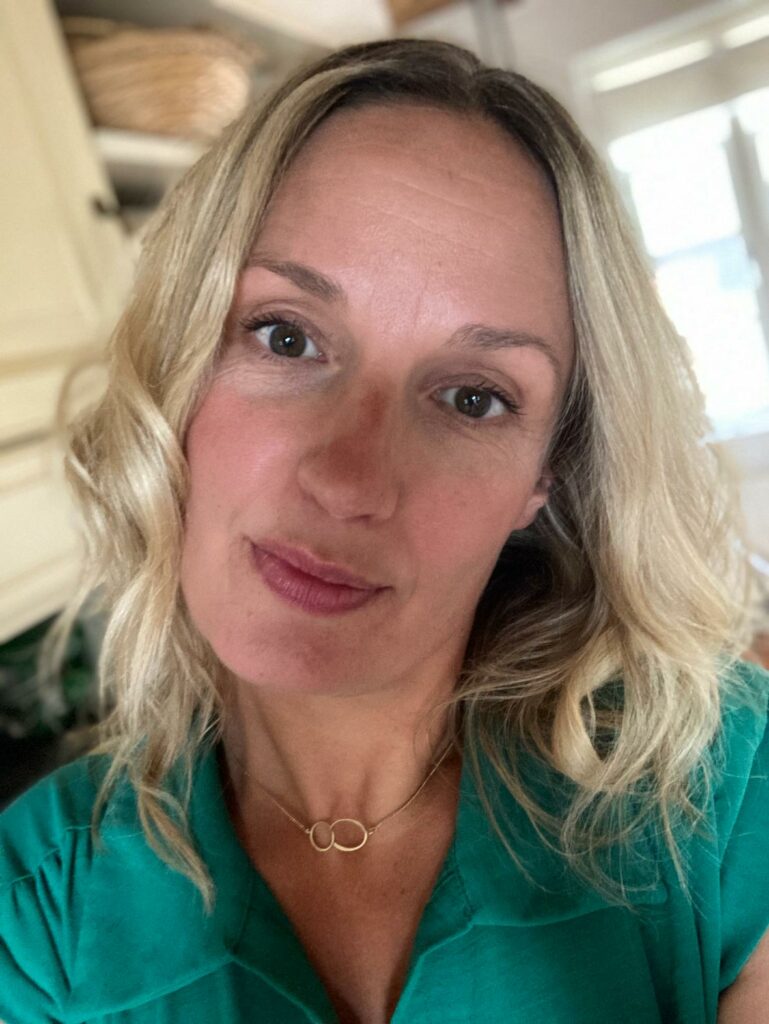
My name is Trine, Im 48 and live in Copenhagen, Denmark. I have spend the last 10 years working with kids, teens and education in the puplic School system in Denmark and I love it! My work has been focused on youth democracy, facilitating, teaching and creating activities and workshops for teens. I am a part of the team that generated the idea for the summercamp and Im really looking forward to the camp in july. I love traveling with my friends and family, I practice yoga and enjoy cooking and eating out. My fav comfort food is fries🤗
Meet the volunteers
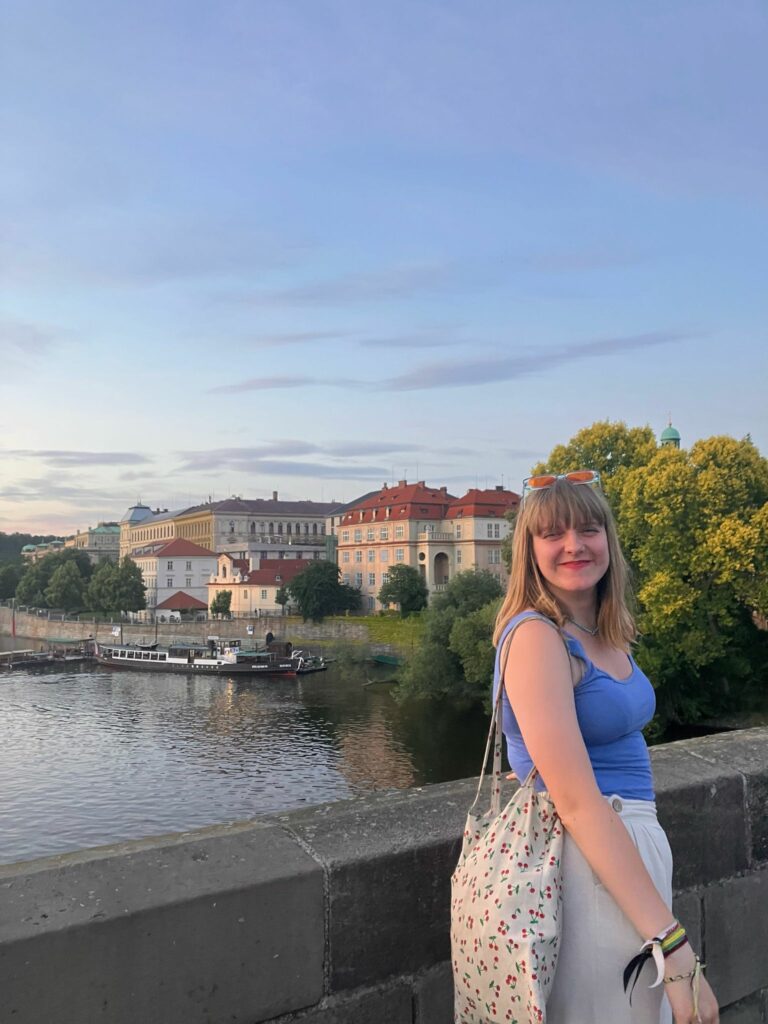
I am Ugnė Dvilevičiūtė, a Lithuanian second-year student at Sciences Po Paris Campus de Menton, majoring in Political Humanities. Following my interest in communities and culture, the project’s focus on identity seems very important to me and thus I am excited to partake in it. As a photographer, I am very eager to capture the happy moments of the camp with my camera and show it to the world!
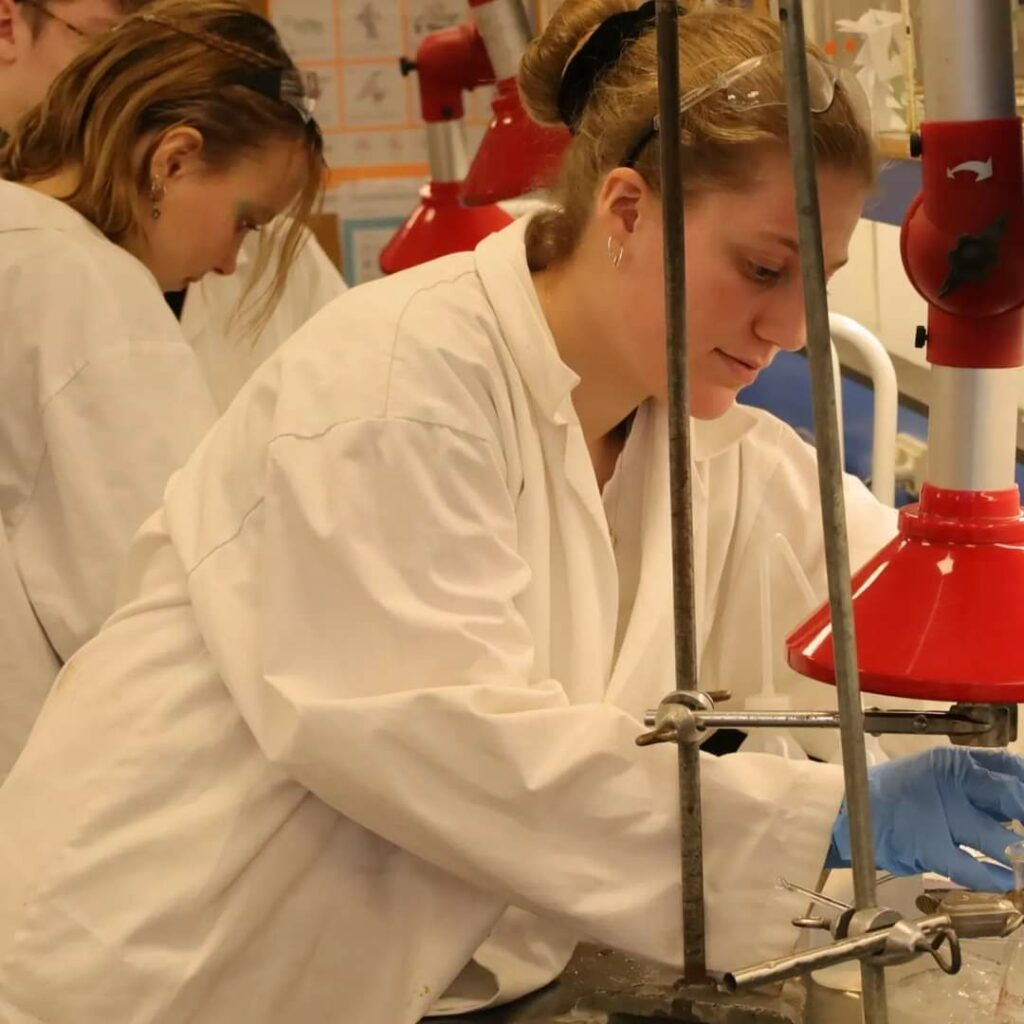
My name is Laura Engeldrum. I am 18 years old and currently enrolled at an international boarding school in Grenå. Raised bilingually, I am fluent in German, Danish, and English, the latter acquired through my education. In my leisure time, I have taken on the role of a scout leader, a position I have held for several years.
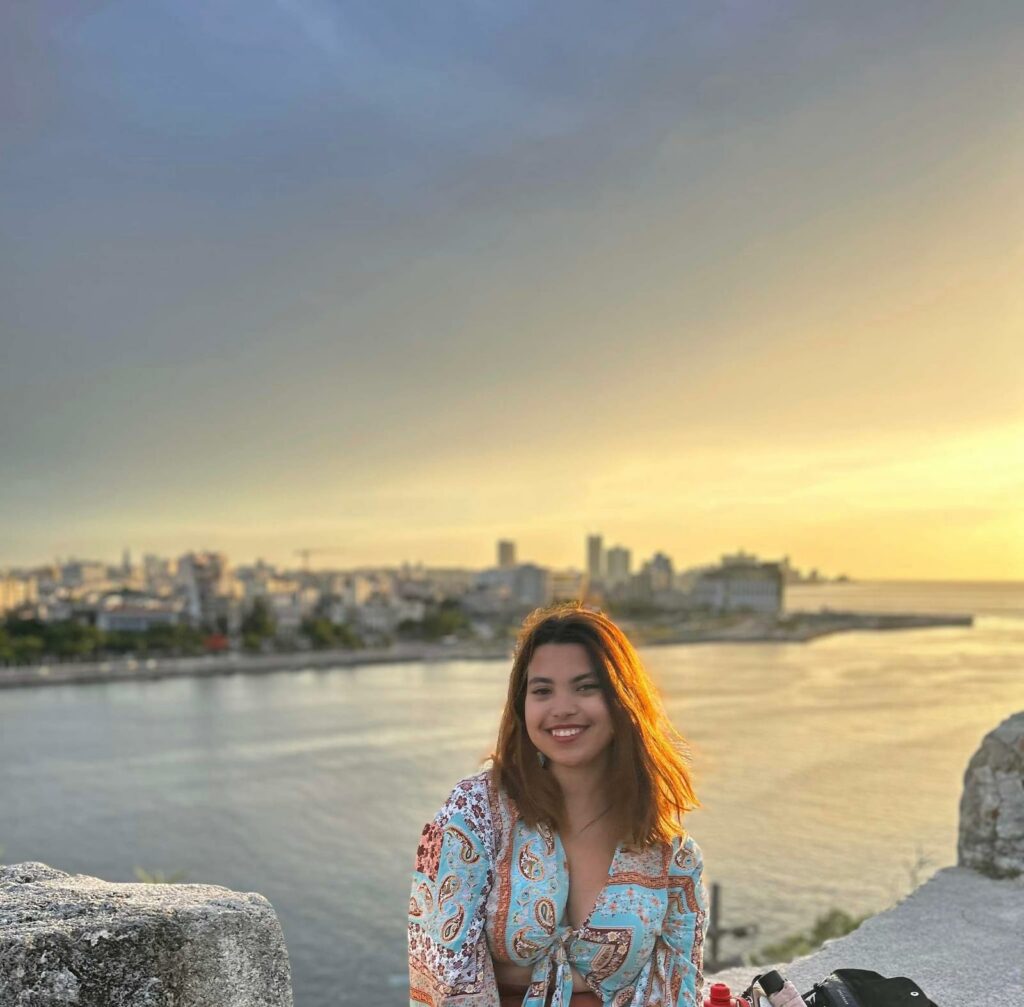
My name is Nadia Alina Sol and I am a second year university student in France, at the Menton campus of Sciences Po Paris. Growing up in Hungary, while coming from a mixed, Russian-Hungarian-Cuban family, I have always been intrigued by the question of cultural and racial heritage. This connection gives a personal touch to the project for me. I am excited to help in any way I can, to bring the most out of the events and workshops we are going to organise!
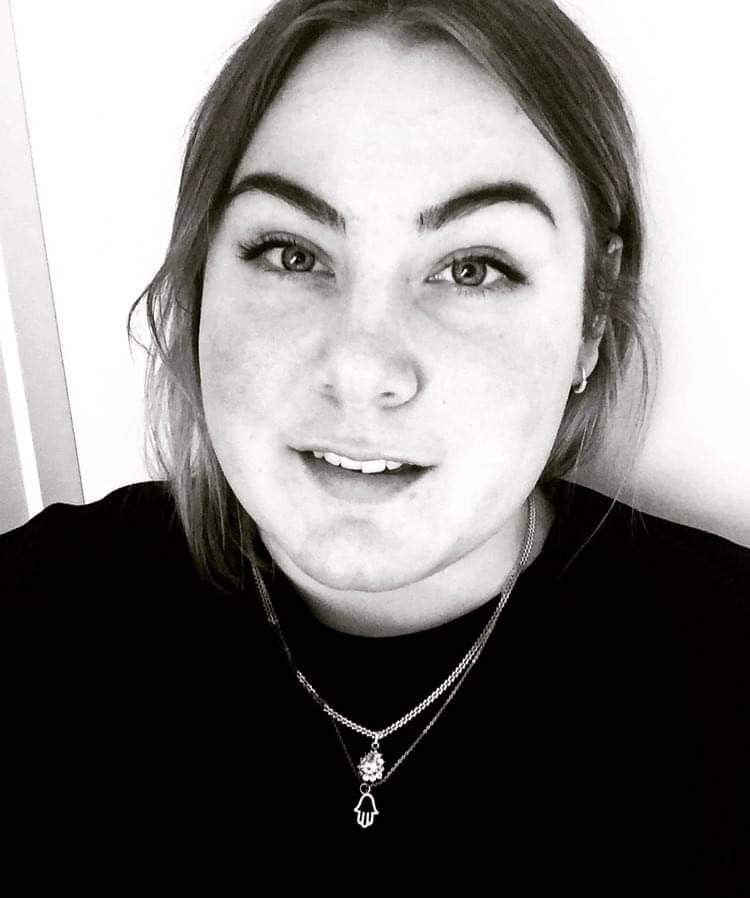
My name is Sahra,
Im from Denmark, i live in the southern part, close to the sea. I work as a projectmanager at the local Youth Education and Activity Center, where i spend a lot of time on youth democracy.
Im 33 years old, a good time for me is going to concert, good food, travel and dancing.
Im looking forward to see you and help in “Afro Hair & Identity” this summer.

My name is Marco Philip and I live in Denmark. I have long been interested in the connection between creativity and development. This I do through my passion for judo, arts and crafts, and now as an architect student. I look forward to assist the children’s activities in the summer camp.
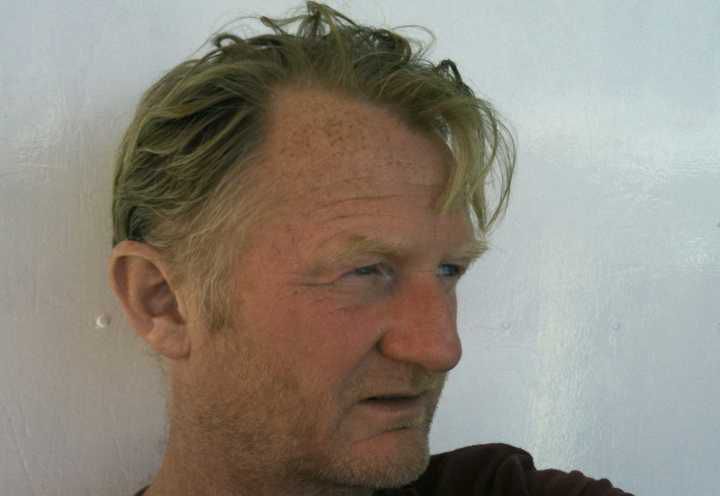
My name is Finn Mathiasen. I was born in Denmark in 1960.
For over the past 20 years I have
produced and directed a variety of domestic and international documentaries and
educational films for Denmark´s Radio, TV2-Denmark, The Ministry of Education, The Ministry of Foreign Affairs, The Ministry of Integration and for many NGO´s. At the Summer School I will be shooting short videos. I want to support this project because I find it really relevant and the topics are very important in the times we are living in right now.
Erasmus+
This project was generously funded by the European Union’s Erasmus+ Programme.
Find more information about the program and its goals here:
https://erasmus-plus.ec.europa.eu/
The European Commission’s support for the production of this publication does not constitute an endorsement of the contents which reflects the views only of the authors, and the Commission cannot be held responsible for any use which may be made of the information contained therein.

Das Projekt
Hauptziel dieses Projekts ist es, Eltern von gemischten Kindern zu befähigen, den Prozess der Identitätsbildung ihrer Kinder aktiv zu begleiten, damit sie stolz auf ihre vielfältigen Wurzeln sind.
Das Herzstück des Projekts ist eine dreitägige Summer School für Eltern, bei denen mindestens ein Elternteil afrikanischer Abstammung ist. Für die Kinder wird während der Veranstaltung eine Kinderbetreuung angeboten. Das übergeordnete Ziel ist es, die Eltern im Umgang mit alltäglichen Situationen zu unterstützen, in denen es um die Tatsache geht, dass ihre Kinder nicht weiß sind, und sie dabei zu unterstützen, dass ihre Kinder mit Stolz auf ihre Identität aufwachsen. Wir werden mit Haaren und Frisuren als primäre Methode arbeiten, da Haare ein wichtiger Ausdruck von Identität und gleichzeitig ein guter Gesprächsanlass sind.
Wir wünschen uns für die Summer School ganz viel Community Building, in einen tiefer gehenden Austausch miteinander zu kommen und sehr viel Spaß zusammen mit unseren Kindern!
Einladung zur Summer School
Seid ihr Eltern eines Kindes, von dem mindestens ein Elternteil afrikanischer Abstammung ist? Dann seid ihr hier genau richtig!
Wir möchten euch zu unserer Summer School in Berlin einladen, die vom 18. bis 21. Juli 2024 stattfindet. Diese Initiative richtet sich an Eltern wie ihr, die Kinder mit afrikanischen Wurzeln haben.
Wir wollen uns mit der Frage auseinandersetzen: Wie können wir unsere Kinder am besten dabei unterstützen, ihre vielfältige Herkunft wertzuschätzen und sie in ihrem Entwicklungsprozess hin zu einer starken Identität bestmöglich begleiten?
Unser Aufhänger für diese Frage sind die Haare unserer Kinder: Haare waren schon immer ein Ausdruck von Identität. Wir wollen gemeinsam lernen, wie Afro-Haar natürlich toll aussieht, und gleichzeitig etwas über die historische Bedeutung von Afro-Haar für die Identität eines Menschen erfahren. Außerdem wollen wir einen Raum für Gespräche über Themen wie Hautfarbe und Andersartigkeit schaffen, sowie die vorherrschende Vorstellung von europäischer Identität diskutieren.
Zu diesem Zweck haben wir Experten für Afro-Haar sowie Menschen, die sich auf Ethnizität und Identität spezialisiert haben, eingeladen, in Workshops gemeinsam mit euch die o.a. Themen zu bearbeiten. Und es wird viel Raum für Spaß, Spiel und Freude geben!
Kinder sind bei der Summer School herzlich willkommen, und wir haben auch ein Programm für sie zusammengestellt. Das Hauptpublikum sind jedoch die Eltern. Ihr sind es, die sich um die Erziehung eurer Kinder und deren Beziehung zu ihren Haaren, ihrer Identität und ihrem Zugehörigkeitsgefühl während ihrer Kindheit und Jugend kümmern werden.
Die Summer School findet im Zebra Kagel statt, außerhalb von Berlin. Dieses ehemalige ostdeutsche Jugendlager bietet fantastische Einrichtungen und Unterkünfte ( https://zebrakagel.de/index.php/de/ ). Wir werden euch die Kosten für Unterkunft und Verpflegung erstatten und die Reisekosten bezuschussen. Das Reisebudget pro Person hängt von eurer Reisedistanz ab: 15€, wenn ihr direkt aus Berlin anreist, 130€, wenn ihr aus Deutschland anreist, 200€, wenn ihr aus einem anderen EU-Land anreist. Die Reisekosten werden euch nach der Veranstaltung erstattet, und wir benötigen dafür eure Tickets als Nachweis der Ausgaben. Und bucht so früh wie möglich, später wird´s nur teurer! Alles klar? Wenn ihr Fragen habt, wendet euch einfach an uns: ursel.biester@trekstones.de
Die Veranstaltung wird in englischer Sprache abgehalten, und bei Bedarf werden Übersetzer zur Verfügung stehen.
Wir öffnen die Türen am Donnerstag, den 18. Juli, um 17.00 Uhr, und das offizielle Programm beginnt am Morgen des folgenden Tages.
Wir freuen uns sehr darauf, mit euch zusammen zu sein, mit euch zu singen, zu tanzen, zu lernen, uns auszutauschen und uns gegenseitig zu unterstützen, die Entwicklung unserer Kinder zu begleiten!
Bis bald,
Ursel, Selva, Trine und Anders
Diese Summer School ist ein von Erasmus+ finanziertes Projekt, das in Zusammenarbeit mit Trekstones (einer in Deutschland ansässigen Organisation) und WintherSol (einer in Dänemark ansässigen Organisation) durchgeführt wird.
Anmeldeformular
Wir haben die Anmeldung geschlossen, weil alle Plätze vergeben sind.
Solltet ihr aus irgendeinem wichtigen Grund wieder absagen müssen, schickt uns bitte so schnell wie möglich eine E-Mail, damit jemand anderes den Platz bekommen kann.
Emails bitte an: ursel.biester@trekstones.de
Alle wichtigen Infos zur Summer School auf einen Blick
Datum: 18.-21. Juli 2024
Anreise: am 18.07. ab 17:00
Abreise: am 21.07. nach dem Mittagessen (gegen 14:00 Uhr)
Ort: Zebra Kagel https://www.zebrakagel.de/index.php/en/
Adresse: Erich-Weinert-Str. 36, 15537 Grünheide-Kagel
Wegbeschreibung: Eine Anfahrtsbeschreibung findet ihr direkt auf der Website von Zebra Kagel: https://www.zebrakagel.de/index.php/en/directions
Von Berlin aus könnt ihr mit öffentlichen Verkehrsmitteln anreisen. Ihr könnt euer Auto auch direkt vor Ort parken.
Kontakt: ursel.biester@trekstones.de, +4917661869607
Erasmus+
Dieses Projekt wurde großzügig durch das Erasmus+ Programm der Europäischen Union finanziert.
Weitere Informationen über das Programm und seine Ziele finden Sie hier:
Die Unterstützung der Europäischen Kommission für die Erstellung dieser Veröffentlichung stellt keine Billigung des Inhalts dar, der ausschließlich die Ansichten der Autoren widerspiegelt, und die Kommission kann nicht für die Verwendung der darin enthaltenen Informationen verantwortlich gemacht werden.
